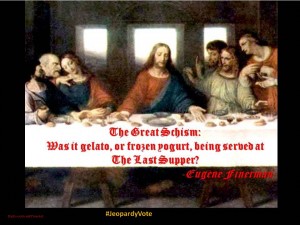In 1789 France was greatest country in Europe. Wealthy, sophisticated, in the forefront of art, intellect and fashion, it was the paragon of western civilization. And all these achievements were despite a government of remarkable incompetence.
The French monarchy was an anachronism. It had modern pomp but medieval circumstances. The government faced 18th century expenses with a 14th century income. A king, on the whims of his mistress, could plunge France into a calamitous war, but he could not raise the taxes to pay for it. The king did not have to answer for his vanity, lust, bigotry or mistakes; but he had to borrow the money for them.
The Crown had been bankrupt throughout most of the 18th century. Much of the treasury actually had been lost in a stock market crash of 1720. The monarchy simply borrowed money to meet its expenses and then borrowed more money to pay off its debts. The deficits grew but the monarchy continued its profligate ways.
By 1778, France could not even afford to win a war; but the prospect of subsidizing the American rebellion against Britain seemed an irresistible revenge for a century of French defeats. In fact, France was so eager that its treaty with the Americans made no provision for repayment or the restoration of lost French territories in America. France proved to be generous to a default. The new debts precipitated a financial crisis. There just wasn’t enough money to borrow. The Crown had to raise taxes; ironically, it did not have that authority.
Throughout the 17th century, Cardinal Richelieu and Louis XIV had amassed and consolidated the powers of the monarchy. Yet, they had either overlooked or whimsically chosen to preserve one medieval constraint: the power to create new taxes.
That was the prerogative of the Estates General. Since the 14th century France had this rudimentary and frequently neglected form of a general assembly. It could be summoned only at the king’s discretions, and the French kings proved very discreet. The Estates General was usually summoned in the event of an emergency. When Louis XVI found the crown overwhelmed by its debts, he reluctantly summoned the Estates General to convene in 1789. (The last previous Estates General had met in 1614.)
The Estates General was comprised of three estates that represented the people and classes of France. The First Estate was the clergy and the Second was the aristocracy. The Third Estate was everyone else but particularly the affluent, educated and vociferous bourgeoisie. Since the first two Estates were generally exempt from taxes, the Third Estate would bear most of any new financial burden.
Louis XVI expected the assembly to comply with his requests for new taxes. Louis XIV might have awed such concessions from the deputies. Louix XV might have charmed them. However, Louis XVI lacked his ancestors’ majesty. The 34 year-old was corpulent, awkward and maladroit. Certain merchants in Alsace might have described him as a “schlub.” Louis could not command the Assembly’s acquiescence. Perhaps no one could. The Third Estate wanted concessions in return for its money. Of course, one might expect that from commoners. However, the majority of the First Estate and even a significant number of the aristocrats sided with the demand for reforms, in particular the establishment of a permanent general assembly for legislation. The French may have hated the British but they liked the idea of a government a l’anglais.
The King and his equally obtuse advisers were shocked by this impertinence. They first tried ignoring the Assembly’s demands. The Crown then resorted to petty intimidation. It locked the doors of the chambers where the Estates General had been meeting. The dispossessed deputies simply moved to a nearby tennis court where they voted to demand a permanent legislature. Faced with this opposition, the dithering King was finally ready to concede to the Estates’ first requests. But, after six weeks of evasions, ploys and intimidation, the aggravated Assembly had increased the tenor and extent of its demands.
Louis was rarely decisive but, when he was, it was a consistent disaster. He now ordered troops from their posts along the border to march on Paris. The king seemed to think his subjects were more of an enemy than any foreign power. If he was hoping to intimidate the Estates General, he only succeeded in igniting riots. The populace of Paris rose in rebellion, desperate to arm itself against any royal suppression. On the morning of July 14, 1789, the militants looted the arsenal at Les Invalides. The mob then attacked the Bastille, a fortress that now served as a royal prison.
Responding to an armed rabble on a rampage, the Civil Guard of Paris mustered its troops and its artillery and marched to the site of the riot. The Civil Guard should have had no trouble dispersing the disorganized mob: it would have been a slaughter. However, when the cannons and muskets of the Guard fired, they fired on the Bastille. Against this united front, the Bastille soon fell.
The news reached the King the following morning. The dismayed Louis asked, “Is this a rebellion?”
“No sire,” a wiser courtier replied. “It is a revolution.”
